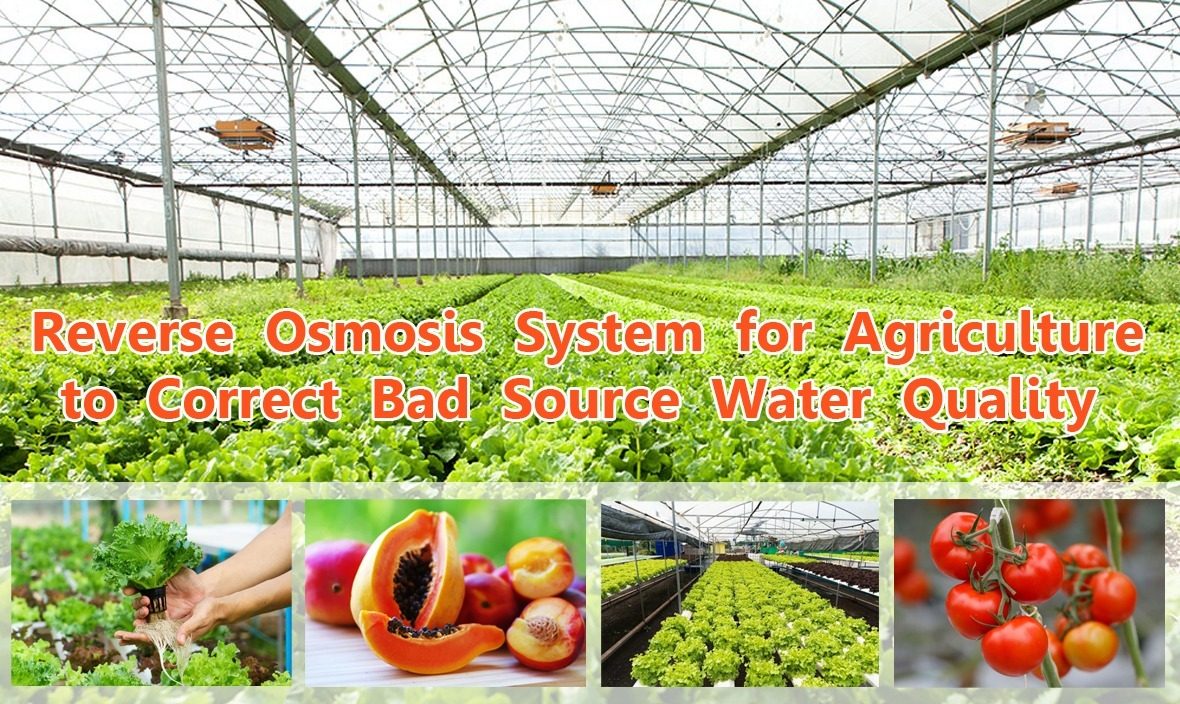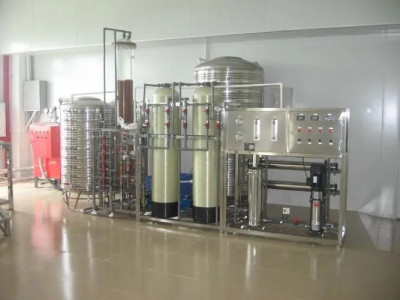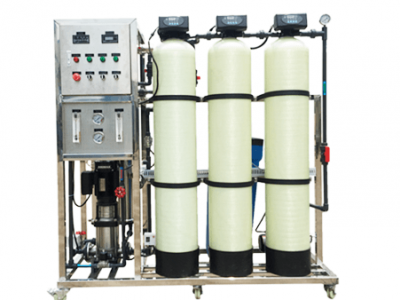Water treatment in the agriculture industry is a critical aspect that cannot be overlooked. Efficient water management plays an essential role in ensuring optimal crop growth and productivity. In today’s world, where water scarcity is becoming increasingly common, it has become even more crucial to implement effective water treatment strategies. The agriculture industry is one of the most significant consumers of fresh water globally, making it essential to prioritize sustainable and efficient water usage. In this article, we will explore the importance of water treatment in the agriculture industry, its benefits, and some of the best practices that can be implemented for effective water management.
June 22, 2023

Importance of Water Treatment in Agriculture Industry
Water is an essential resource for the agriculture industry as it is required for crop irrigation, livestock drinking and cleaning, and other agricultural activities. However, the quality of water used in agriculture can have a significant impact on crop yields and animal health. Therefore, it is crucial to ensure that the water used in agriculture is treated properly before use.
The use of untreated water in agriculture can lead to several problems such as soil erosion, plant diseases, nutrient imbalances, and reduced yield. Additionally, untreated water can contain harmful pathogens and chemicals that can pose a threat to human health when consumed.
To ensure the safety and quality of water in agriculture, various types of water treatment systems are used depending on the source of the water and its intended use. These systems include filtration systems, reverse osmosis (RO) plants, ultraviolet (UV) disinfection systems, and others.
When deciding on a water treatment system for agriculture, there are several factors that need to be considered. These include the source of the water, its quality, available technology options, cost-effectiveness, maintenance requirements and compliance with local regulations.
Implementing a proper water treatment system is not only important for ensuring high-quality crops but also for preserving natural resources by reducing waste and conserving water. It can also help farmers to avoid potential legal liabilities due to non-compliance with environmental regulations.
Types of Water Treatment Used in Agriculture Industry
Water treatment plays a crucial role in the agriculture industry. The water used for irrigation, livestock and aquaculture must be treated before use to avoid negative impacts on crops, animals, and the environment. There are several types of water treatment systems that are commonly used in agriculture.
- Filtration Systems
Filtration is a common method used to remove suspended solids from water. It involves passing water through various media such as sand, gravel or mesh filters that trap particles as they pass through. Filtration systems provide an effective way of removing impurities from water before it is distributed for irrigation purposes.
Reverse osmosis is a process that involves passing pressurized water through a semi-permeable membrane to remove dissolved minerals and salts from the water. RO systems are ideal for treating brackish or saline groundwater sources that contain high levels of total dissolved solids. They can remove up to 99% of contaminants from water and produce clean and purified water that is safe for agricultural use.
UV sterilization uses ultraviolet light to kill bacteria, viruses and other microorganisms present in the water. The UV light disrupts their DNA structure rendering them harmless and preventing them from reproducing. UV sterilization systems provide an effective way of treating pathogens in the water without using chemicals.
- Chlorination Systems
Chlorination involves adding chlorine gas or compounds such as sodium hypochlorite to the water to kill all pathogens present in it. Chlorine is an affordable and widely available disinfectant that provides excellent results against bacteria, viruses, fungi, algae and other microorganisms found in agricultural waters.
Each type of water treatment system has its own advantages and disadvantages depending on the specific needs of the agriculture industry. It is important to consider factors such as water quality, water source, treatment capacity and cost when selecting a system for agricultural use.
Factors to Consider When Choosing a Water Treatment System for Agriculture
Water is essential for the growth of crops and livestock in the agriculture industry. However, it is not always safe or clean enough to use directly from its source. This is where water treatment comes in, providing farmers with a reliable way to ensure that their water supply is free from contaminants that can be harmful to their crops and animals.
When choosing a water treatment system for agriculture, there are several factors that must be considered:
- Water Quality
The first factor that must be considered when choosing a water treatment system for agriculture is the quality of the water source. The type and amount of contaminants present will determine the type of treatment required. For example, if the water contains high levels of dissolved minerals such as calcium and magnesium, an RO plant for agriculture may be necessary.
- Cost
The cost of a water treatment system can vary greatly depending on its size and complexity. Before investing in a system, it is important to consider both the initial cost and ongoing maintenance expenses associated with it.
- Capacity
The capacity of the system must also be taken into account when choosing a water filter system for agriculture. The size of the unit should match the needs of the farm – too small and it won’t effectively remove all contaminants, too large and it may become too expensive or cumbersome to maintain.
- Efficiency
Efficiency is another important factor when selecting a water treatment system for agriculture – how well does it remove impurities? How much energy does it require? Is it easy to operate? These are all questions that should be asked before making any purchasing decisions.
- Environmental Impact
Finally, environmental impact should also be considered when selecting a water treatment system for agriculture. Systems that rely on chemicals or produce large amounts of waste may not be suitable for environmentally conscious farmers.
Best Practices for Implementing a Water Treatment System in Agriculture Industry
Implementing a water treatment system in the agriculture industry is essential to ensure that crops are grown with clean and safe water. Here are some best practices to consider when installing a water treatment system:
Assess Your Needs: Before you can implement a water treatment system, you need to assess your needs. This includes evaluating the quality of your current water supply, identifying any contaminants or pollutants that may be present, and determining what type of filtration or treatment system will be most effective.
Choose the Right System: There are various types of water treatment systems available in the market, including reverse osmosis (RO) plants, ultraviolet (UV) sterilizers, and activated carbon filters. Each system has its own benefits and drawbacks, so it is important to choose the right one based on your specific needs.
Consider Maintenance Requirements: Once you have chosen a water filter system for agriculture, it is important to consider its maintenance requirements. Some systems require more frequent maintenance than others, and failure to properly maintain your system can result in reduced filtration efficiency or even contamination of your water supply.
Train Employees: It is important to train employees who will be responsible for operating and maintaining the water treatment system. This includes providing them with proper safety training and ensuring they understand how to properly operate the equipment.
Monitor Performance: After installation, it is important to monitor the performance of your agriculture water filter system regularly. This includes testing your water supply for contaminants or pollutants, checking filtration efficiency levels, and identifying any necessary repairs or replacements.
By following these best practices for implementing a water treatment system in agriculture industry, you can help ensure that crops are grown with clean and safe water while also minimizing risks associated with contaminated or polluted water supplies.
How to Choose the Right Pure Water Treatment Equipment for Your Needs?
November 10, 2025
How to Choose the Right Pure Water Treatment Equipment for Your Needs? (by ROAGUA – Professional Water Treatment Equipment Manufacturer, China)
Turn Muddy Water into Clean Water: ROAGUA Stainless Steel Ultrafiltration Water Purifier for Africa
November 5, 2025
Clean Water for Every Village – ROAGUA Stainless Steel Ultrafiltration Water Purifier Built for Africa’s Tough Water Conditions
How Do You Select the Right 500LPH RO System?
October 14, 2025
buy right 500LPH RO System, please read this one first



